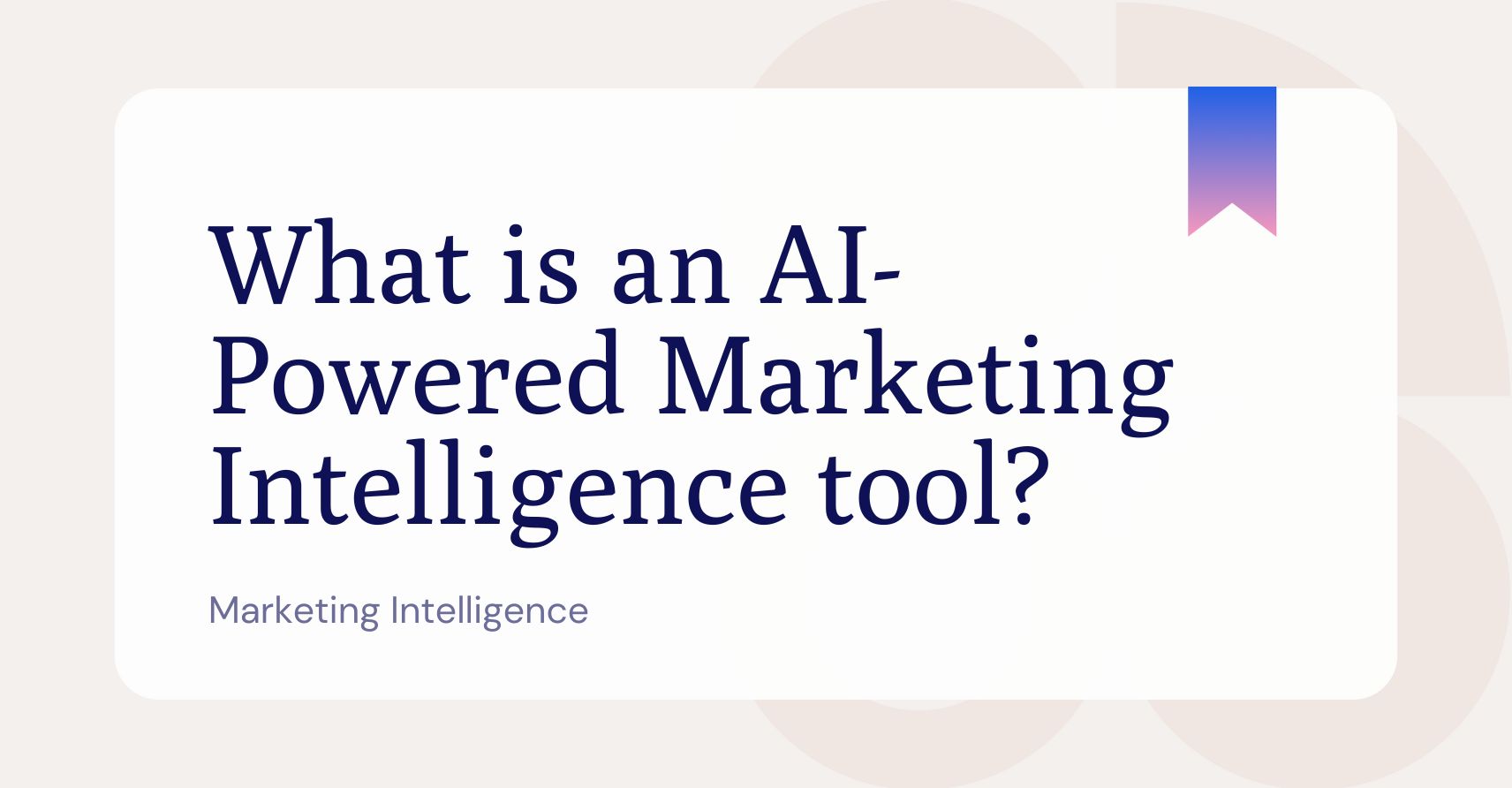An AI-powered marketing intelligence tool helps B2B marketers and social media managers automatically turn complex data into real, usable insights. These tools pull from dozens of data sources, such as social platforms, CRM systems, email platforms, and analytics tools, and transform everything into meaningful answers: What's working? What's not? What should I do next?
Instead of spending hours digging through spreadsheets or toggling between dashboards, these tools surface insights in real time. They can highlight patterns you might miss, suggest optimizations mid-campaign, and continuously learn to improve their recommendations.
How artificial intelligence transforms raw data into real marketing insights automatically
Behind the scenes, artificial intelligence is a digital analyst, constantly gathering, cleaning, and interpreting your data so you don't have to. Here's what that transformation looks like in action:
1. Data ingestion
The tool connects to all your marketing systems: social media, web analytics, CRM, email, ad platforms, webinars, and more. It gathers campaign-level data, audience behaviors, click paths, engagement metrics, and pipeline activity.
2. Data normalization
Raw data from different systems doesn't always line up. AI cleans and aligns it, for example, linking a contact's activity from an ad on social media to their email click behavior and sales opportunity in your CRM.
3. Pattern recognition
AI scans for trends that aren't immediately obvious. It can identify declining post engagement on LinkedIn, spot increasing interest in specific topics, or correlate webinar attendance with high-value conversions.
4. Recommendations and predictions
Instead of waiting for reports, you get proactive alerts and suggestions: "Your engagement is down 12% this week- consider testing a different post format," or "Campaign B is driving more pipeline despite fewer leads."
How AI marketing intelligence tools fit into the modern B2B stack
Modern B2B marketing teams are managing increasingly complex buyer journeys. Marketers use various platforms for awareness, engagement, nurturing, and handoff to sales: LinkedIn, HubSpot, Salesforce, Google Ads, ON24, and more.
The problem is that each of these tools generates its own metrics. You can spend hours trying to match data from one system to another.
That's where AI-powered marketing intelligence comes in. It becomes your central layer of understanding, giving you one lens to view performance across channels, teams, and buyer stages.
For example:
-
The advertising platform can show which posts will likely drive MQLS (not just likes).
-
From your CRM, it detects whether your top-of-funnel channels are feeding your pipeline.
-
In webinars, it uncovers which sessions influence deal acceleration.
Every day use cases in B2B social media and demand generation
These tools go far beyond basic reporting. Here's how AI-powered marketing intelligence drives value in day-to-day B2B activities:
Social media strategy
-
Identify what time and format drives the highest engagement across LinkedIn.
-
Detect fatigue in creative assets and recommend fresh angles.
-
Understand which social audiences convert deeper in the funnel.
Content marketing
-
Surface which topics resonate most with target accounts.
-
Track how gated vs. ungated assets perform in nurturing sequences.
-
Optimize content calendars based on trending industry signals.
Campaign performance
-
Compare pipeline influence across multiple paid and organic channels.
-
Get alerts when cost-per-lead spikes or conversion rates drop.
-
Recommend real-time adjustments to audience targeting.
Sales enablement
-
Show sales teams which content types help close deals faster.
-
Inform SDR outreach with insight on what prospects engaged with.
-
Align marketing and sales metrics for better collaboration.
What to look for when choosing a marketing intelligence tool
Not all AI-powered tools are built the same. As a marketing or social media manager, here's what to look for:
-
Ease of use: Is it built for marketers, not data scientists? The UI should be intuitive.
-
Cross-platform integration: Can it connect to all your key marketing tools (LinkedIn, HubSpot, Salesforce, etc.)?
-
Real-time insights: Does it help you take action while campaigns are live, not just post-mortem?
-
Custom metrics and goals: Can you tailor insights to your funnel or KPIS?
-
Scalability: Will it grow with your team as your campaigns and channels expand?
-
Security and compliance: Make sure it complies with data privacy and security standards.
The future of AI-powered marketing intelligence
Looking ahead, marketing intelligence tools will continue to evolve. Expect even deeper personalization, predictive insights, and voice or chat interfaces that let you ask questions like:
"Which of my posts from last quarter drove the most pipeline in the healthcare vertical?"
As generative AI becomes more integrated, we may also see tools that can auto-generate content recommendations, simulate campaign outcomes, and even generate performance narratives tailored for different stakeholders.
Real-world example: Using AI for LinkedIn marketing
You're managing a weekly content series on LinkedIn targeting IT decision-makers. An AI-powered tool could help you:
-
Identify which headlines drive higher engagement.
-
Predict the best posting times based on audience behavior.
-
Track whether that content leads to meetings booked.
-
Alert you when engagement rates drop, suggesting alternatives.
-
Benchmark your content performance against industry averages.
Instead of just seeing vanity metrics, you get meaningful answers tied to revenue outcomes.
Final thoughts
AI-powered marketing intelligence tools take the guesswork out of B2B marketing. They work behind the scenes to connect, clean, and interpret your data, giving timely, relevant, and actionable insights without the spreadsheet hassle.
This means less reporting and more time strategizing for marketing and social media managers. You're empowered to make smarter and faster decisions and stay ahead of shifting audience behavior.
